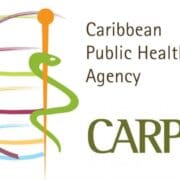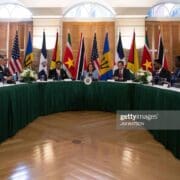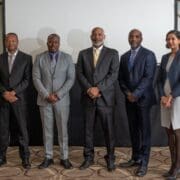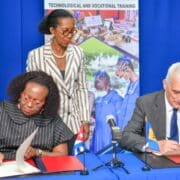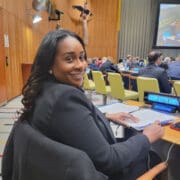Trinidad makes pitch to help Caribbean countries monetise energy sector
Black Immigrant Daily News
Trinidad and Tobago Tuesday said it is prepared to assist Caribbean Community (Caricom) countries further develop their oil and gas industries and has taken a deliberate policy to engage its regional neighbours in the development of economic cooperation in the energy sector.
Prime Minister Dr Keith Rowley, addressing the opening of Guyana’s International Energy Conference and Expo, told more than 1,200 delegates that crude oil, which was once seen as being at the margins of the region, has become a focal point with major discoveries in Guyana, Suriname, French Guyana, Belize and Trinidad and Tobago.
He said beyond this, there is a huge interest by major oil and gas companies prospecting off the coasts of Barbados, Grenada, Bahamas, Cuba, Jamaica and the Dominican Republic.
Rowley said exploration success by new Caribbean entrants in the petroleum industry can be a game changer for the Caribbean region.
He told the conference that is being held under the theme “Harnessing Energy for Development”, and aims to facilitate the exchange of ideas, propositions, and plans for fundamental advances in the energy sector, that fossil fuels, namely oil and gas, will remain the dominant energy source in the near to medium term.
“Regional availability and infrastructure will determine how various countries expand their domestic energy supplies. Industry innovation for both fossil fuels and renewable sources will continue to increase energy supply and energy efficiency, thereby improving energy security and reducing greenhouse gas emissions,” he said.
Rowley said global trends such as climate change are forcing a rethinking of investment, especially in the light of a reshuffling of global economic activity and significant demand growth in the developing world.
“However, fossil fuels are still the main energy source for the world’s economic engine and are cost-effective. It is resilient and affordable energy that creates economic growth. Therefore, the concept of climate change should not prevent developing countries from using fossil fuels as sources of energy in pursuit of economic growth.”
He said it is interesting to note that during the rethink, in so far as circumstances demand, some developed countries have fired up their old coal-burning plants and have declared hitherto despised nuclear power as “clean energy.”
“The Caribbean response is to designate natural gas as the clean energy, reserve our right and willingness to continue to explore for and market oil resources and invest in green energy and technologies as far as we are able to.
“We will continue to make the case to the major global polluters to encourage investment in green initiatives identified within the region. We in the Caribbean are not alone in defending our energy interests,” Rowley said, noting the statement by the Pulitzer prize winner Daniel Yergin who had pointed out that in the 1990s, before shale, gas never accounted for more than 17 percent of electricity generation by 2019 gas had risen to 38 percent and continues to rise.
Rowley said that the regional energy landscape does not equip any single country to meet the energy security requirements of the region. He said a cooperative approach allows for shared risks and diversified perspectives and will facilitate the development and execution of innovative solutions to the challenges associated with the energy demand for the region.
Donate At Caribbean News Service, we do not charge for our content and we want to keep it that way. We are seeking support from individuals and organisations so we can continue our work & develop CNS further.
NewsAmericasNow.com




